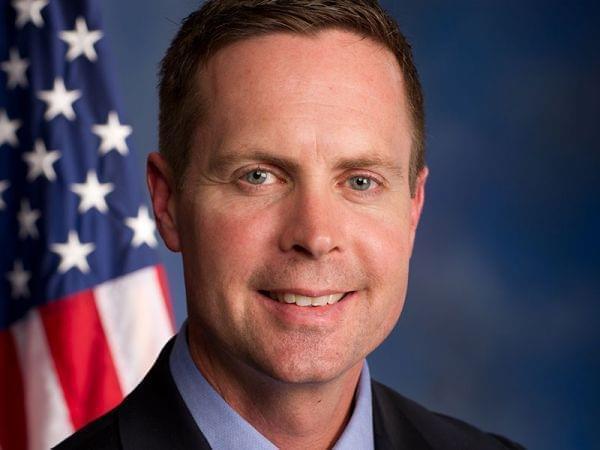Rep. Davis Says He Will Side With The President On National Emergency Declaration

President Trump vetoed a congressional resolution Friday that would have blocked his declaration of a national emergency. The emergency declaration is part of the president’s effort to bypass Congress in order to secure billions of dollars for more funding to build a wall along the U.S.-Mexico border.
The president’s veto will send the legislation back to Congress. U.S. Rep. Rodney Davis (R–Taylorville) said he will side with the president again, and vote to sustain the veto.
Davis voted against the resolution when it passed the Democratic-controlled U.S. House in February. Thirteen House Republicans joined Democrats in passing the measure on a vote of 245 to 182.
“I initially thought about voting the other way,” Davis said Friday during a visit to the University of Illinois campus in Urbana. “As a matter of fact I was leaning that way.”
Davis said a conversation with U.S. Rep. Adam Kinzinger (R-Channahon) changed his views. Kinzinger, a member of the Wisconsin National Guard, was deployed to the southwestern border and it was during that time that Davis says the two Illinois congressmen communicated by text message.
“He said I’m here on the border. This isn’t just about illegal immigration,” Davis said. “This is about human trafficking, and this is about drug trafficking, and he told me if he was there to vote that day he would have voted for the national emergency that the president is declaring.”
Davis said he and Kinzinger, who criticized Wisconsin Gov. Tony Evers for withdrawing his state's National Guard from the border, typically vote together on issues of executive action.
The House is expected to vote in the coming weeks on whether to override the president’s veto. But an override is unlikely, since that would require 290 votes, more than the 245 votes the resolution received in the House. The resolution also failed to get a veto-proof majority in the Senate, where the vote was 59 to 41, with 12 Republicans joining Democrats in supporting it.

